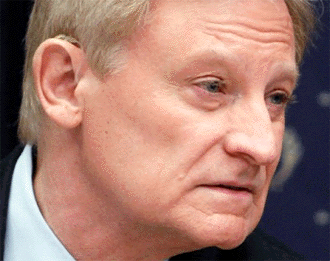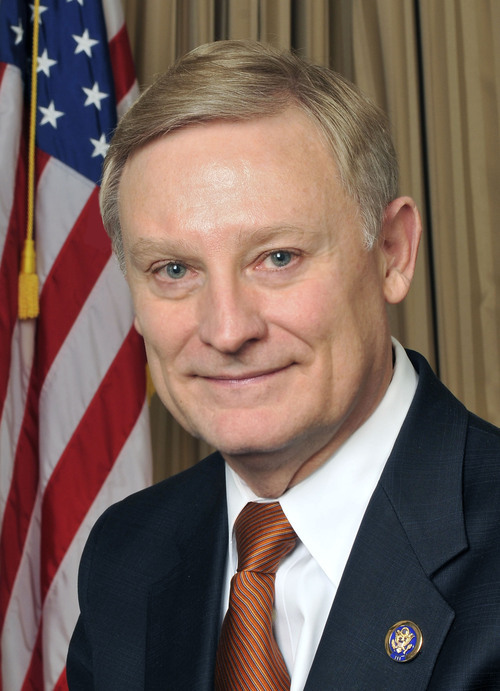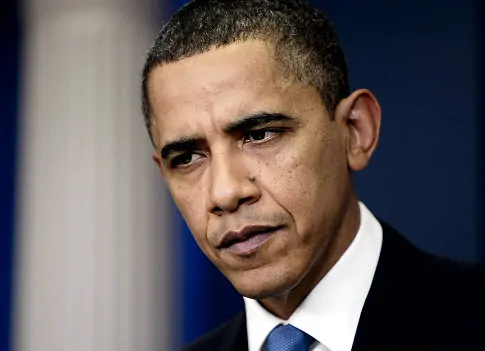By Brandon Moseley
Alabama Political Reporter
US Representative Spencer Bachus (R) from Vestavia announced that the US House Financial Services Subcommittee on Oversight and Investigations, chaired by Rep. Randy Neugebauer has released the full report on its year-long majority staff investigation into the collapse of MF Global on Thursday.
Rep. Bachus is the Chairman of the House Financial Services Committee
Chairman Bachus said, “Despite the promise of Dodd-Frank that regulators would work together, what the Subcommittee’s investigation found is there was no meaningful coordination among the regulators who were responsible for the supervision of MF Global. This left each regulator with an incomplete understanding of the company’s financial health – and MF Global’s customers paid the price. This, once again, raises the question of whether regulators are so preoccupied writing hundreds of new rules that they’re missing the basics like safeguarding customer funds and protecting investors from financial frauds.”
House Financial Services Subcommittee on Oversight and Investigations, Chairman Neugebauer said, “We conducted this investigation because MF Global customers deserve to know how and why their funds went missing; market participants deserve to know whether regulatory lapses have been identified and will be corrected; and taxpayers deserve to know that regulators are being held accountable so similar losses may be prevented from occurring in the future.”
MF Global began as a sugar brokerage founded by James Mann in London in 1783. In 1869, the business became known as E.D.&F. Man. It set up its first overseas operations in New York and Hong Kong in 1972, and began trading commodities futures. The company expanded its services in 1983 to include investment management. In 1994, it was first listed on the London Stock Exchange and had $1 billion in funds under management.
In modern times the company’s management became increasingly reckless. Beginning in 1997, the Commodity Futures Trading Commission (CFTC), the CME Group, and other exchanges through which the company traded took 80 regulatory actions against the company. The CFTC fined MF Global $10 million for supervision failures in four separate instances between 2003 and 2008, including unauthorized trading by an MF Global employee that led to a $141.5 million loss.
Following the penalty Kevin R. Davis left as CEO and former US Senator John Corzine became the new CEO of the company. Ideally a brokerage makes its money when clients make trades on their accounts. As they buy and sell futures and commodities the company racks up fees. Under Corzine (who was the former CEO of Goldman Sachs) MF Global itself became heavily involved in trading.
According to the report, “Shortly after arriving at the company in March 2010, Corzine announced his strategic plan to restore MF Global’s profitability by turning the company into a global investment bank (a “mini-Goldman”) and securing a primary dealer designation for MFGI from the Federal Reserve Bank of New York (New York Fed). MF Global also sought to generate revenue by purchasing European sovereign bonds and using them as collateral in repurchase-to-maturity (RTM) transactions, investments which were a prime focus of Corzine’s attention.
Beginning in September 2010, MF Global significantly expanded its European RTM portfolio to support the company’s new business model and to boost profits. Under Corzine’s direction, MF Global’s net position in European sovereign debt increased to $6.3 billion just weeks before the company’s collapse. Ultimately, MF Global’s belated disclosure of its extensive European RTM portfolio, its inability to meet increasing liquidity demands, and its lack of internal controls led to its collapse.”
Essentially, Corzine personally bet every dollar that the company had that there would be a robust economic recovery following the 2008-2009 recession particularly in Europe. He fired the company’s risk manager when concerns were raised and threaten to resign if the Board of Directors did not give him a free hand in his speculative European bond plays.
A brokerage company like MF Global has to maintain liquidity to pay its bills, its payroll, and to pay clients when they want to make withdrawals from their accounts. With all of its money tied up in speculative sovereign bond plays which were rapidly going awry MF Global essentially had no liquidity to maintain operations. MF Global compounded the situation by mixing company funds with customer funds, something that regulators should have noticed earlier. In just 19 months, CEO John Corzine ran the company into bankruptcy.
MF Global’s failure was the eighth largest bankruptcy in U.S. history and resulted in a $1.6 billion shortfall in customer funds.
To read the 101 page report in its entirety:
http://financialservices.house.gov/uploadedfiles/256882456288524.pdf

















































